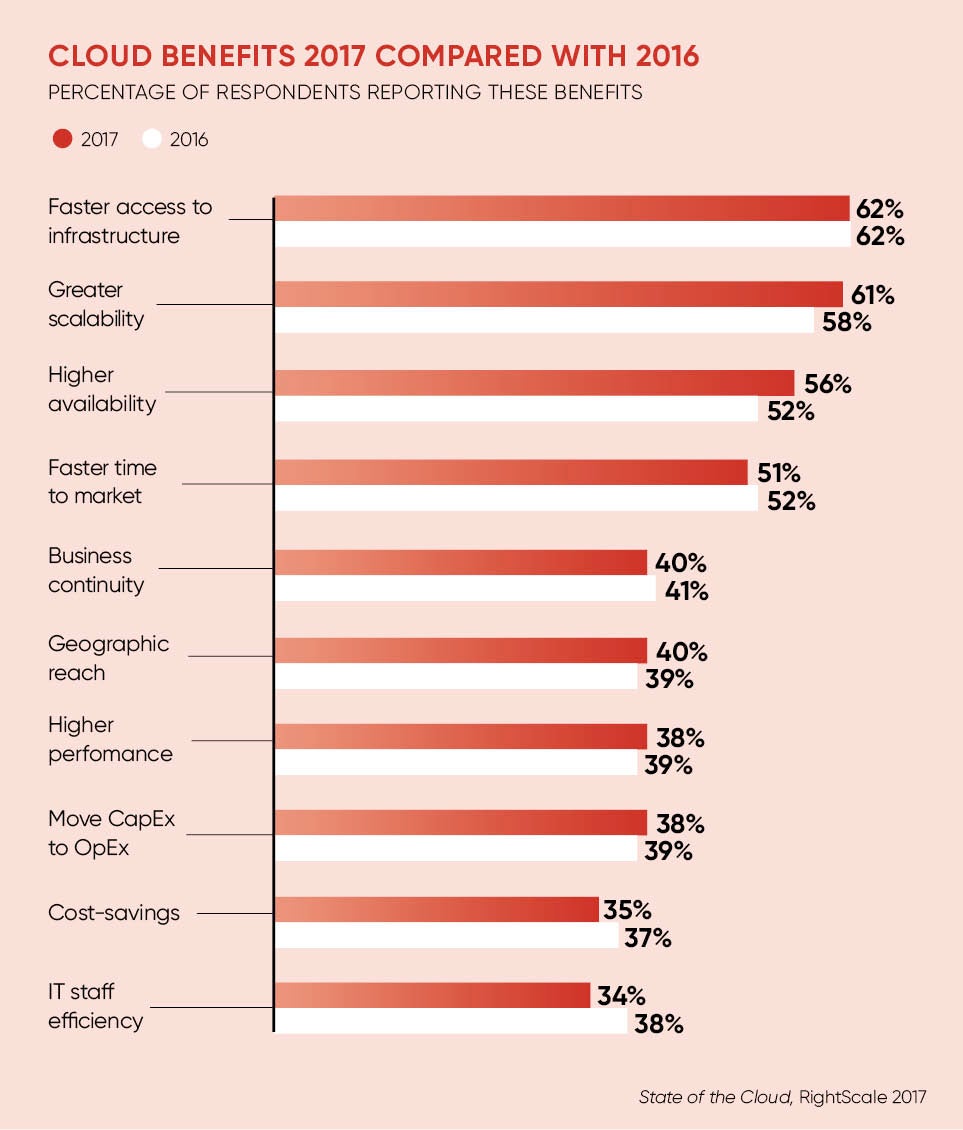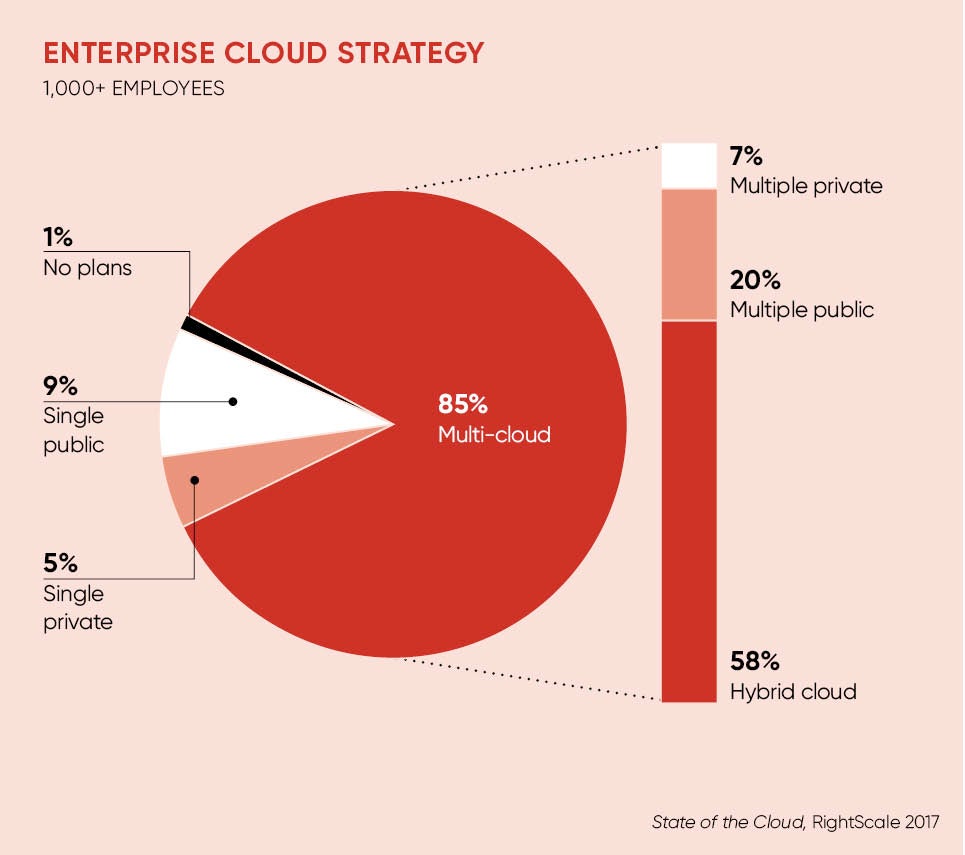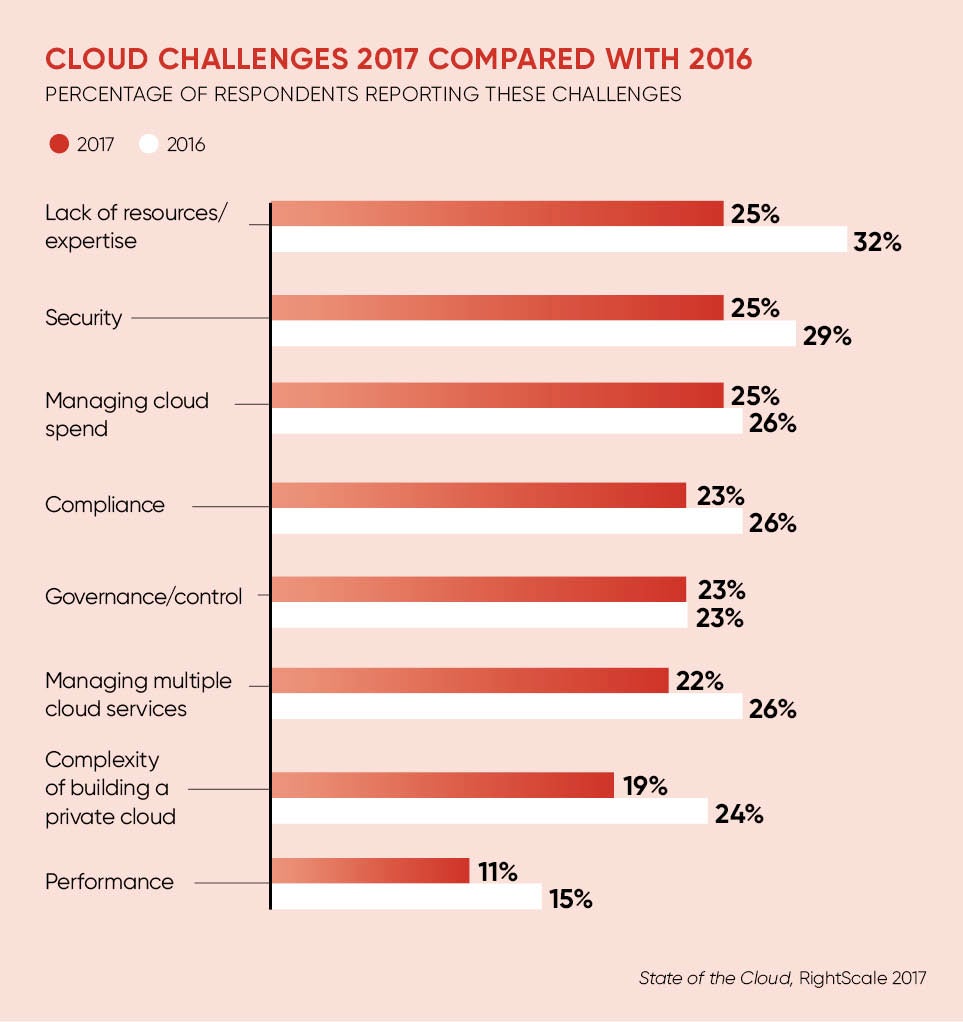In its FutureScape: Worldwide Cloud 2017 report, analysts IDC predict a multi-cloud architecture will be adopted by more than 85 per cent of enterprises by 2018, a trend driven by the fact that businesses are increasingly aware of the merits and limitations of individual cloud providers.
Many are now exploring the benefits and challenges of employing multiple cloud suppliers and seeking out the managed cloud partners that will help run their multi-cloud strategy in the most effective way.
John Engates, chief technology officer at leading managed cloud company Rackspace, says: “The question that organisations are now asking about cloud technology has shifted from ‘why cloud?’ to ‘what cloud?’ and they are recognising the benefits that multi-cloud solutions can bring in creating a robust platform that is scalable, stable, cost effective and helps them meet the challenges of an increasingly complex regulatory landscape.”

A multi-cloud strategy is extremely flexible in allowing organisations to choose services and providers that will best meet their requirements, right down to the individual business processes or business units. Rather than using solely a public or a private cloud, a business leverages two or more cloud services across multiple vendors to create a broad-ranging cloud approach that can deliver a number of benefits.
One of the biggest benefits is that different cloud providers offer different products and technical capabilities suited to the various demands of diverse customers and applications. There are also cost benefits, as utilising a mix of clouds based on pricing models often garners cost-savings.
Onerous data protection legislation is set to have an increasingly significant impact on IT strategy, creating a greater burden of compliance. However, with a move towards a tailored multi-cloud strategy, organisations can store more sensitive data on-premises or in private cloud environments, and move other workloads to public cloud environments to utilise the scalability, cost efficiency and compute capabilities.
In addition, by not having all their eggs in one cloud “basket”, organisations can maximise redundancy to ensure site stability and consistently deliver a good user experience.
But it is not all smooth sailing. While multi-cloud can deliver huge benefits for enterprises, it can also be complex and challenging to implement and run, as Mr Engates points out.

“Clearly, businesses can and do benefit from the adoption of a multi-cloud approach, both in terms of higher performance and cost-efficiency capabilities,” he says. “However, in committing to a multi-cloud infrastructure, they will also face a number of challenges, notably those surrounding management and integration.”
These include difficulties around the logistics of managing IT services across multiple providers for example, how to delegate responsibility for things like scheduled downtime and service visibility of the entire infrastructure. As each cloud provider is delivering only a part of the business strategy, none of them has obvious accountability for overall service delivery.
The biggest challenge is likely to be a lack of expertise. According to the RightScale 2016 State of the Cloud report, this is the biggest barrier to cloud adoption. “The simple reason is that cloud technology is relatively new and most people in IT are not cloud natives,” says Mr Engates.
Because cloud technology is evolving at an increasing pace, organisations constantly have to review and inevitably redesign their IT solutions and integration. They also face the challenge of staying abreast of the pricing of multiple providers to establish whether or not they are getting value for money.
Compliance is another potential minefield. Ensuring that all applications are correctly licensed and compliant with external regulatory bodies is no small undertaking.
Many organisations do not have the resource to manage multiple cloud providers effectively themselves. The recruitment, training and engagement of a team with the requisite IT skills to do so can incur huge business expense. Such a move for most companies would be neither efficient nor cost effective.
The solution for many multi-cloud-enabled enterprises has been a managed cloud approach, working with a managed cloud partner with the expertise and experience of managing tens of thousands of environments and numerous platforms.
Rackspace employs dedicated specialists, whose sole job is to remain highly skilled on these platforms and are continually learning the latest in technology
One such partner, Rackspace, works with some of the world’s leading enterprises to provide the skills and expertise to manage their multi-cloud environments, be it on AWS, Microsoft, VMware or other infrastructures. In doing so they are also able proactively to support clients in developing a strategy that keeps the IT department aligned with their overall business goals.
As cloud technology continues to grow and evolve, and the number of services offered multiplies, it will inevitably become more challenging to manage a complex combination of clouds. For example, this year alone, AWS has released more than 71 new updates, including new security features, tools that simplify the movement of data around an organisation’s cloud, testing features and authentication services. This creates difficulties for IT departments in maintaining the skills needed to keep up with these changes.
Rackspace employs dedicated specialists, whose sole job is to remain highly skilled on these platforms, and are continually learning the latest in technology, enabling the enterprise’s IT team to focus on their core role of meeting company objectives.
Mr Engates concludes: “We are already seeing a huge increase in demand for managed cloud services and a greater reliance by organisations on companies such as Rackspace to manage their evolving multi-cloud environments, improving business efficiencies, increasing cost-savings and, at the same time, enabling them to focus on their core business.”
For more information please visit www.rackspace.co.uk




